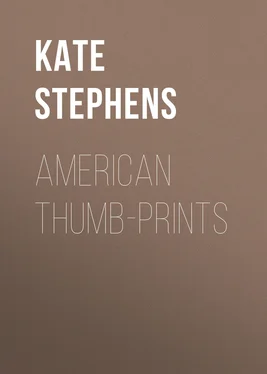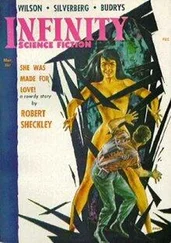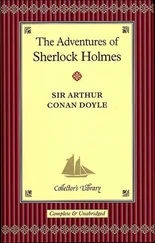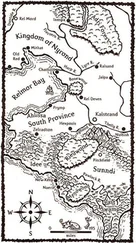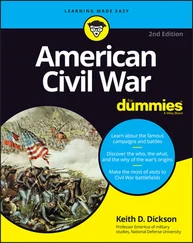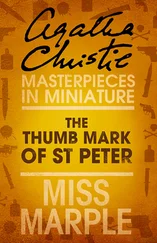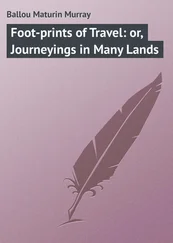Kate Stephens - American Thumb-prints
Здесь есть возможность читать онлайн «Kate Stephens - American Thumb-prints» — ознакомительный отрывок электронной книги совершенно бесплатно, а после прочтения отрывка купить полную версию. В некоторых случаях можно слушать аудио, скачать через торрент в формате fb2 и присутствует краткое содержание. Жанр: foreign_prose, foreign_antique, на английском языке. Описание произведения, (предисловие) а так же отзывы посетителей доступны на портале библиотеки ЛибКат.
- Название:American Thumb-prints
- Автор:
- Жанр:
- Год:неизвестен
- ISBN:нет данных
- Рейтинг книги:3 / 5. Голосов: 1
-
Избранное:Добавить в избранное
- Отзывы:
-
Ваша оценка:
- 60
- 1
- 2
- 3
- 4
- 5
American Thumb-prints: краткое содержание, описание и аннотация
Предлагаем к чтению аннотацию, описание, краткое содержание или предисловие (зависит от того, что написал сам автор книги «American Thumb-prints»). Если вы не нашли необходимую информацию о книге — напишите в комментариях, мы постараемся отыскать её.
American Thumb-prints — читать онлайн ознакомительный отрывок
Ниже представлен текст книги, разбитый по страницам. Система сохранения места последней прочитанной страницы, позволяет с удобством читать онлайн бесплатно книгу «American Thumb-prints», без необходимости каждый раз заново искать на чём Вы остановились. Поставьте закладку, и сможете в любой момент перейти на страницу, на которой закончили чтение.
Интервал:
Закладка:
His road was made ready for sleepers, and funds for purchasing iron he formally handed the promoters,—since which day purslane and smartweed and golden sunflowers have cloaked the serpentine grades which his own hands had advanced at the rate of more than a mile between each dawn and sunset.
One direct relation and force of these inflated plans to the Kansan have been that they often swerved and controlled the values of his land, and the prices of those commodities from which a soil-worker supports a family hungry, growing, and in need of his commonwealth’s great schools. And the man himself, poor futurist and striver after the idea, with a soul soaring heavenward and hands stained and torn with weed-pulling and corn-husking!—his ready faith, his tendency to seek a hero, his brushing aside of conservative intuition, his meliorism, his optimism, his receptivity to ideas, his dear humanness—in other words, his charm, his grace, his individuality, his Americanism—wrought him harm.
Our corporate man, loving, aspiring, working, waiting, started out with a nervous excitability already given. He was a man with a bee in his bonnet. He was seeking ideal conditions. Originally he was a reactionist against feudal bondage, the old bondage of human to human and of human to land. Later his soul took fire at the new bondage of human to wage and job. He would have every man and woman about him as free in person as he was in idea.
What wonder then that he or his descendent spirit in the midst of agricultural distress enacted a mortgage equity or stay law, and determined that that law should apply to mortgages in existence at the passage of the act! He it is of the all-embracing Populism, the out-reaching Prohibitionism, the husband-man-defensive Grangerism. Shall we not humanly expect him, and those suffering the contagion of his noble singleness, to clutch at plans for a social millennium? “Heaven is as easily reached from Kansas,” wrote an immigrant of 1855, “as from any other point.”
He values openly what the world in its heart knows is best, and like all idealists foreruns his time. The legend is always about him of how the men and women of the early fifties hitched their wagon to a star—and the stars in his infinity above are divinely luminous and clear. His meliorism—which would lead his fellows and then the whole world aright—is nothing if not magnificent.
But although he grubs up the wild rose and morning-glory, ploughing his mellow soil deep for settings of peach and grape, and supplants the beauty of the purple iris and prairie verbena with the practicalities of corn and wheat, he has yet to learn the moral effect of time and aggregation—that a moon’s cycle is not a millennium, a June wind fragrant with the honey of his white clover not all of his fair climate, and that a political colossus cannot stand when it has no more substantial feet than the yellow clay which washes and swirls in the river that waters his great State. In reality his excess of faith hinders the way to conditions his idealism has ever been seeking.
The Kansan is, after all, but a phase—a magnificent present-day example and striving—of the mighty democratic spirit which has been groping forward through centuries towards its ideal, the human race’s ideal of ideals. In his setting forth of the genius of his people for democracy and the tendency of his blood for experiment and reform—according to that advice to the Thessalonians of an avaunt courier of democracy, to prove all things and hold fast to that which is good—he is led at times upon miry, quaggy places and by the very largeness of his sympathies enticed upon quicksands which the social plummet of our day has not yet sounded.
THE UNIVERSITY OF HESPERUS
And not by eastern windows only,
When daylight comes, comes in the light,
In front, the sun climbs slow, how slowly,
But westward, look, the land is bright.
No university has anywhere ever become a great influence, or anything but a school for children, which was not wholly or almost wholly in the hands of the faculty or teaching body. The faculty is the teaching body. If you have the right sort of faculty, you have a university though you have only a tent to lecture in. If, on the other hand, you try to make a university out of a board of sagacious business men acting as trustees, and treat the professors simply as “hired men,” bound to give the college so many hours a week, you may have a good school for youths, but you will get no enlightening influence or force out of it for the community at large.
A writer in The Nation , 1889THE UNIVERSITY OF HESPERUS
During a great national struggle for human rights, Laurel Town was touched by the high seriousness which rises from sincerity to the idea of human liberty and the laying down of lives in defence of that idea. Its baptism and its early years were thus purely of the spirit.
A miniature burg, it snuggles upon broad, fat lands, semicircling the height that rises to the west. From the hill-top the tiny city is half-buried in green leaves. Looking beyond and to the middle distance of the landscape, you find rich bottoms of orchard and of corn, and the Tiber-yellow waters of a broad river running through their plenty.
First immigrants to this country—those who came in back in the fifties—discovered the hill’s likeness to the great Acropolis of Athens, and determined that upon it, as upon the heights of the ancient city of the golden grasshopper, the State’s most sacred temple should be built. Thus were inspired library and museum, laboratories and lecture-rooms, of the University of Hesperus, whose roofs are gleaming in the vivid air to-day just as in some ancient gem a diamond lying upon clustering gold sends shafts of light through foliations of red metal.
The brow of this hill beetles toward the south, but instead of the blue waters of the Saronic Gulf which Sophocles in jocund youth saw dancing far at sea, Hesperus students sight hills rolling to the horizon, and thickets of elms and poplars fringing Indian Creek, and instead of the Pentelic mountains in the northeast they catch the shimmering light of the green ledges and limestone crests of the northern edge of the valley the river has chiselled.
But how, you ask—thinking of the fervor of the immigrants of 1854 and ’55—how did this university come into being? In stirring and tentative times. The institution was first organized by Presbyterians, who later accepted a fate clearly foreordained, and sold to the Episcopalians. This branch of the church universal christened the educational infant Lawrence University, after a Boston merchant, who sent ten thousand dollars conditioned as a gift on a like subscription. The institution to this time was “on paper,” as these founders said of early towns—that is, a plan, a scheme, a possibility. It finally became the kernel of the University of Hesperus when the State accepted from Congress a grant of seventy-two square miles of land.
“There shall be two branches of the University,” the charter reads, “a male and a female branch.” In clearer English, the institution was to be open to men and women.
Seeds of the convictions which admitted women to instruction had long been germinating, even before the independence of women was practically denied by the great Reformation. The idea was in the mind of our race when we were north-of-Europe barbarians. It found sporadic expression all through our literature. It is back of Chaucer in annals of the people and later in such chroniclers as Holinshed. Bishop Burnet, historian of his “Own Time,” and also Fuller, he of the human “Worthies,” determined that “the sharpness of the wit and the suddenness of the conceits of women needed she-schools.” Later Mary Woolstonecraft wrote: “But I still insist that not only the virtue but the knowledge of the two sexes should be the same in nature, if not in degree, and that women, considered not only as moral but rational creatures, ought to endeavor to acquire human virtues by the same means as men, instead of being educated like a fanciful kind of half-being.” And that moral and prudent sampler, Hannah More, declared: “I call education not that which smothers a woman with accomplishments, but that which tends to confirm a firm and regular system of character.”
Читать дальшеИнтервал:
Закладка:
Похожие книги на «American Thumb-prints»
Представляем Вашему вниманию похожие книги на «American Thumb-prints» списком для выбора. Мы отобрали схожую по названию и смыслу литературу в надежде предоставить читателям больше вариантов отыскать новые, интересные, ещё непрочитанные произведения.
Обсуждение, отзывы о книге «American Thumb-prints» и просто собственные мнения читателей. Оставьте ваши комментарии, напишите, что Вы думаете о произведении, его смысле или главных героях. Укажите что конкретно понравилось, а что нет, и почему Вы так считаете.
